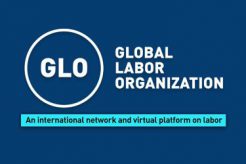A new GLO Discussion Paper uses UK longitudinal data to investigate within households both the labour supply and informal care responses of an individual to the event of an acute health shock to their partner to find no evidence of a health-related ‘added worker effect’ .
The Global Labor Organization (GLO) is an independent, non-partisan and non-governmental organization that functions as an international network and virtual platform to stimulate global research, debate and collaboration.

GLO Discussion Paper No. 806, 2021
Labour supply and informal care responses to health shocks within couples: evidence from the UKHLS– Download PDF
by Macchioni Giaquinto, Annarita & Jones, Andrew M. & Rice, Nigel & Zantomio, Francesca
GLO Fellow Andrew Jones
Author Abstract: Shocks to health have been shown to reduce labour supply for the individual affected. Less is known about household self-insurance through a partner’s response to a health shock. Previous studies have presented inconclusive empirical evidence on the existence of a healthrelated ‘added worker effect’. We use UK longitudinal data to investigate within households both the labour supply and informal care responses of an individual to the event of an acute health shock to their partner. Relying on the unanticipated timing of shocks, we combine coarsened exact matching and entropy balancing algorithms with parametric analysis and exploit lagged outcomes to remove bias from observed confounders and time-invariant unobservables. We find no evidence of a health-related ‘added worker effect’. A significant and sizeable increase in spousal informal care, irrespective of spousal labour market position or household financial status and ability to purchase formal care provision, suggests a substitution to informal care provision, at the expense of time devoted to leisure activities.

GLO Discussion Papers are research and policy papers of the GLO Network which are widely circulated to encourage discussion. Provided in cooperation with EconStor, a service of the ZBW – Leibniz Information Centre for Economics, GLO Discussion Papers are among others listed in RePEc (see IDEAS, EconPapers). Complete list of all GLO DPs – downloadable for free.
Ends;


















